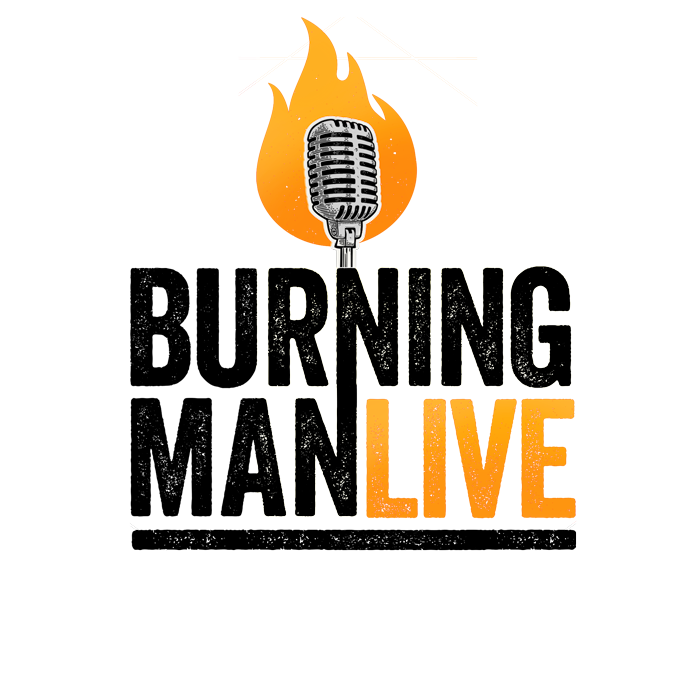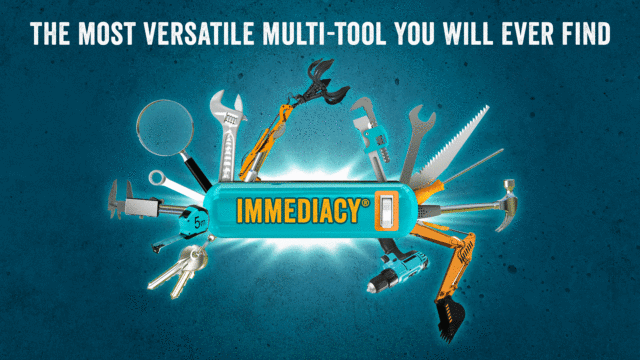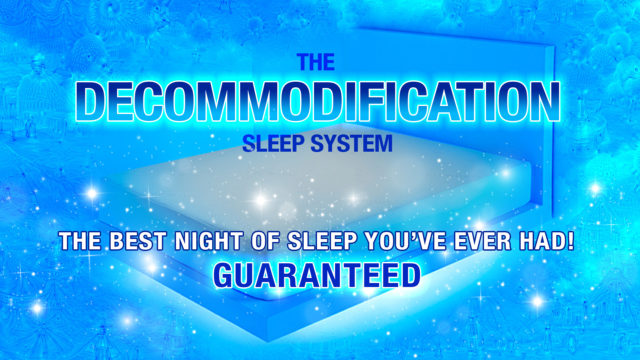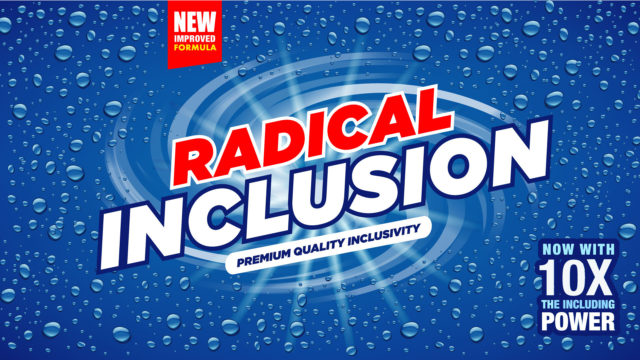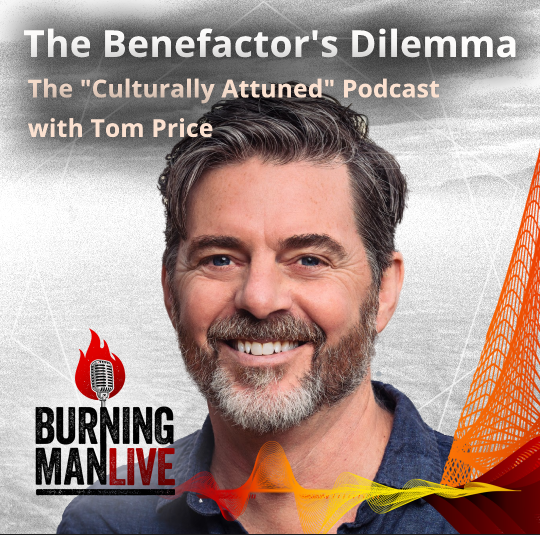
Tom Price and the Benefactor’s Dilemma
Stuart talks with ‘Burners Without Borders’ co-founder Tom Price, then shares an interview from the deep well of ‘Culturally Attuned,’ a podcast by the US Institute of Peace in collaboration with Burning Man Project.
Tom talks about community resilience and his attempts to bridge cultural gaps around race, color, privilege, and the legacy of colonialism.
He extols the need for humility and personal agency, and developing relationships of mutual trust and respect – from Kenya to Liberia, to the Native American lands of Nevada.
He also presents Burning Man as a place to practice operating with each other organically, without imposed signifiers of who gets to be in charge.
USIP (United States Institute of Peace): Culturally Attuned Podcast
USIP: Culturally Attuned: Benefactor’s Dilemma: Am I helping or Am I Wielding Power? (podcast episode)
Burners Without Borders: What Does Burning Man Have to Do With Peace? (audio clip)
Burning Man LIVE: Culturally Attuned with the US Institute of Peace (2021 podcast episode)
Burning Man LIVE: Creative Solutions to Mass Destruction (with Tom Price) (2020 podcast episode)
Our guests
Tom Price started attending Burning Man in 1997, and never looked back. A self-proclaimed “practical idealist,” he became obsessed with exploring what happens when Burning Man values jump the trash fence, first by helping found Burners Without Borders following Hurricane Katrina, then as founder and Executive Director of Black Rock Solar. A former journalist once banned from Botswana, he now works in renewable energy, most recently launching a clean cooking startup in Kenya. His 2008 Six Word Bio still checks out: “Hugged some trees, then burned them.” @tomprice
Transcript
STUART: Hey, everybody. Welcome back to a bonus episode of Burning Man LIVE, another episode of Culturally Attuned. You may remember last year we dropped an episode of this series into our channel. This is a very cool podcast produced as a collaboration between Burning Man Project and the US Institute of Peace. That last episode featured Kim Cook. Super happy to see that Dominic Kiraly and his team have put together a second season and it’s even juicier than the first.
To help me tee this episode, I have this featured speaker that you’re gonna be hearing from, right here with me in our imaginary studio, Mr. Tom Price. Now, longtime listeners, you may recall Tom’s voice from the bygone days of our first season of Burning Man Live. Tom is a long time community member, co-founder of Burners Without Borders. Welcome, Tom Price. Thanks for joining me.
TOM: Great to be here. Hi. Hey.
STUART: Really, thanks for doing this. I know you’re a busy guy these days. You’ve been dividing your time over the last year or two between California and the work that you’re doing in Africa. Do you want to take a moment and just say a little bit about what that project’s all about?
TOM: Sure. I run a renewable energy company that provides clean cooking services to families in Nairobi, Kenya.
STUART: Outstanding. So you’re making every day a clean air day in Nairobi.
TOM: Well, the crazy thing is that it’s actually, in an odd way, an extension of a Burning Man failed art project from 2007. My friend Larry Smith wrote a series of books called “Six-Word Memoirs.” And he asked me in 2008, what my six-word memoir is, and it still checks out today. My six-word memoir is: “Hugged some trees. Then burned them.”
STUART: And that led to this social entrepreneurship endeavor?
TOM: Yes, where we use biomass gasification, which was part of a failed art project that was part of The Green Man in 2007. That was also the year that Elon Musk came with a wind test model of – they hadn’t even built the first Tesla yet – to show people what technology was going to come down the road. And they very carefully sanded all the branding and labels off of it. And well, here we are today.
STUART: The gasification project, that was working with Jim Mason on his car thing that was a pretty colossal face plant, but led in turn to his business: All Power Labs, right?
TOM: Correct, which led me to learn about biomass gasification; how you can light things on fire in a new and interesting and clean way. And if you attend Burning Man, and have for 25 years plus like I have, you’re fascination with burning things really never goes away.
STUART: It’s pretty novel to find a new way of setting things on fire. I really appreciate that.
So in addition to colossal fails on the playa, I know that the best episodes of Culturally Attuned have had to do with people failing in their intercultural relationships; going into places where they don’t know anyone, where they’re not familiar with the customs, and finding some unusual surprises that they can share as learning moments. In your experience, have there been any of those?
TOM: It’s kind of constant. I mean, as I mentioned in that podcast, I’m hyper-aware of my privilege. Being a white American cis-male puts me in a certain position in most situations that I encounter around the world and I have over and over and over in my life utterly failed to be fully mindful of the micro privilege, macro privilege, and micro and macro aggressions, that I benefit from. Because of that, it’s one of the things that I love so much about going to Burning Man, is that in that space, when we remove all the cultural iconography and signifiers that allow you to very quickly see and even unconsciously classify people by their clothes and their status, it forces you to encounter them as they are in that moment. It’s kind of the inverse of the other world where I navigate from living in Berkeley, California, to going and working in Nairobi, Kenya, where it’s a country of 57 million people, there’s 7,500 white citizens in Kenya. So a very, very different dynamic for me to navigate in.
STUART: Yeah. A small minority, but a huge legacy of colonialism, right?
TOM: Exactly. And so there is this, sort of, omnipresent at some low-grade level, but always there, exhibition of that legacy. I find myself constantly sort of being deferred to because I’m the white guy in the room, and so that it conveys a certain something which is more often than not, not warranted. And it’s a great education for me to be mindful of. And
You know, we live in a… America is the only country in the world that was created around values, and not identity, so we all live every day in a place that, to one degree or another, is exposing us to some significant amount of diversity. And dealing with the privilege that people that look like you and me have in this environment and in most environments around the world, it takes a conscious will to be mindful of it and not take advantage of it.
STUART: Why is this work so important to you, Tom? It sounds like you have a mission in life.
TOM: We’re at an interesting inflection point in the community of which we’re a part of, Stuart. I want to put this bug in your ear, and that is this: Look, the society in which we live, the planet which we inhabit, is about to undergo some very deep, fundamental changes, and resilient communities are going to be the things that allow people to navigate that with some relative ease. I think of the event that we co-create as being a training ground for what happens when we tear all the structure of society down to the studs and put it back together in new and interesting ways, because that is exactly what is going to be happening to our countries, to the concept of countries, to nation-states.
You know, this week in India and Pakistan, they had five days in a row where it was 125 degrees.
STUART: Wow.
TOM: It’s April. It’s going to get uninhabitable in parts of the world, and we’re going to have tens of millions of people migrating back and forth. The reason we have so many people at the Southern border is because it’s no longer possible to grow crops in Guatemala like people could; they can’t feed themselves. So I think of Burning Man, not as this, you know, hedonistic party or whatever, but this is the place where we get to go to practice the skills that we’re going to need for the struggle ahead. And that’s not fun, and that’s why I don’t get invited to a lot of parties, but I think it’s important and potentially interesting to at least some people.
STUART: You know, that really resonates with some of the conversations I had with Larry Harvey. He really felt that something was coming. Back then he didn’t know that it would be this horrifying, or that it would take this particular form, but he always talked about how we were rehearsing for the breakdown of civilization and figuring out ways to build it ourselves in ways that were powerful.
TOM: Oh, we’re going to build it, and how to train each other up, how to learn how to operate with each other, how to learn how to operate without the usual signifiers of who gets to be in charge, of who gets to allocate resources, and instead of allowing that to evolve kind of organically.
And yeah, I think the fact that we have hundreds of thousands of people who’ve now gone and practiced that and seeing expressions of that. That’s why I’m so proud of BWB is because, you know, there’s 180-something chapters on the world of people taking a set of ideologies to link people who don’t have a shared identity to do something good.
STUART: And meanwhile in the United States identity politics seems to be continually on the rise right now. Even though this country wasn’t founded on those ideals, it certainly looks scary out there right now to me.
TOM: Otherwise, how are people that look like you and me going to continue to be in charge when we’re in a minority? So, something to look forward to anyway. Well, happy to talk anytime, as always.
STUART: Yup. I feel the same way, Tom. Let’s just set up another time for us to just talk about everything and anything, and make an episode out of it. How about that?
TOM: That’d be great.
STUART: Well, that sounds like a great setup for this episode of Culturally Attuned. Thanks so much for helping tee this up, Tom Price. Thanks again for your time. Always a pleasure.
TOM: Alright. See ya.
STUART: Folks, here is our bonus episode of Culturally Attuned.
TOM PRICE: It’s obvious. It’s like saying the sky is blue. The whole experience of Burning Man is this coming together of wildly disparate people from hugely divergent backgrounds — economically, socially, politically, ethnically — putting them all together, and then scrubbing away all the cultural iconography that we use as shorthand for figuring out how to differentiate each other, and creating an opportunity for them to see each other as people.
And the example that I come up with when people ask me about “What’s Burning Man like?” I say: I remember once sitting around a campfire and there were two people talking, and one of them is a short-order cook from Santa Cruz, and the other owns half of Google. And if you didn’t know that, you would never have learned it, because of the kind of conversation, because the two people were just two people meeting around a fire.
And the reason that people go to Burning Man and had their minds blown, and then come back shattered and tried to put their lives back together in some kind of order, is because they’ve been somewhere where they have 1) been able to try out different versions of themselves and take it for a test drive and see what it’s like to be a different person than the one that they find themselves in in the default world.
And 2) to spend time around a whole bunch of other people who are doing the exact same thing, and realize that you can have these extraordinary, deep connections with people if you just stop looking at what their haircut looks like, and what their accent is, and what their clothes are, and where you think they’re from, and where you think they went to school. Those things do not define people, but because we live in such a diverse world, and because humans grew up in societies that had an average of 150 people in a community, we’re not used to being able to manage knowing more people than that, we’ve developed these shorthands for putting people into boxes. And the result of that is that, in the default world, when we meet somebody, it’s so often the case that we just sort of pigeonhole them and never, ever learn who they are.
And the prime example of that at Burning Man is, I’ve known people there for 20 years, who are dear, close friends of mine that I’ve had profoundly intimate, searing experiences with, and I have no idea where they live or what they do for a living. And that happens all the time.
And so when we think about the idea of promoting peace; the absence of peace is conflict, what drives conflict is perceived or real scarcity of resources, and the need to preserve and defend those that we have and get more for later. Peace comes when people realize they have enough, and not only do they have enough, they have enough to share and give to each other. And that allows moments of eating together and playing together and creating together. Through those moments we create the bonds that allow us to tolerate other people who are different from us because we have been able to see that there are areas of connection in community.
So Burning Man is this enormous engine of tolerance and collaboration because it strips us away from all of the symbols that divide us now and then puts us in a little Petri dish for a week, that allows us to marinate with all these other spices and all these other flavors from somewhere else.
If you’re open to it, if you’re willing to embrace that, if you’re willing to push yourself past the point of discomfort for just a few days and be willing to see what emerges, what you will find there is that you have a great deal in common with people that you would probably otherwise never, ever speak to.
That understanding and awareness is the foundational basis for creating lasting peace. And in a world that is being driven towards ever greater scarcity, and ever greater conflict over resources, we have an existential need for finding a way to work together toward common goals and purposes. We are running out of time to solve this puzzle, and if going to the middle of nowhere to one of the worst places on the planet and suffering for a week is the way to learn that lesson, well, then I guess that’s the price we have to pay. It turns out to actually be a pretty fun way to get that lesson, though.
Culturally Attuned Podcast: The Benefactor’s Dilemma: Am I helping? Or am I wielding power?
DAVID YANG: We’ve all had experiences feeling like a fish out of water with a new group of people, at a new job, or in a new country. But have you found yourself getting special treatment in a new place instead? Getting access to a service you didn’t pay for, being offered something members of a local community wouldn’t have access to? Chances are it’s happened to you, and you may not have even noticed.
I’m David Yang, and today on Culturally Attuned we’re talking about privilege and power. Whether it’s our nationality, our race, our gender, our wallet or our academic degree, a lot of factors can offer us privilege. And as outsiders in a local community or new culture, these privileges can sometimes give us the sense that we know what’s best for others.
Tom Price knows these feelings well. He’s a co-founder of the community leadership network, Burners Without Borders, and he has wrestled with cultural humility and what he calls, “micro-temptations” throughout much of his career.
Today, we’ll consider lessons from a few of Tom’s stories from the field and learn how to get better at checking our privilege and reckoning with feelings of cultural superiority.
TOM PRICE: The nature of the work that I’ve done is across a bunch of different things. It’s politics, policy, business advocacy and by definition, you’re trying to create shared experiences and shared perspectives and shared goals. So that requires finding ways to connect with people.
Currently, I work in East Africa and when I travel there, I am intensely aware of the fact that as a white American, cis-gendered male, I am the default dominant person in all the environments that I operate in and it requires constant awareness to not take advantage of that.
It’s all of the tiny little micro indulgences that are granted when you work in a culture that is more deferential to people in authority to not take advantage of that.
I spent several years working in Liberia, which is one of the most broken places in the world. In a 20-year span, they had two civil wars and Ebola.
I went and worked there on and off including during the Ebola crisis half a dozen times over several years. And I was aware of it every single day all day long. And even the small things like for example, you’re driving down the road and it’s hot and you want to cool down and your car doesn’t have air conditioning. So we pull over into the parking lot of a five-star hotel and I knew that I could just walk in the door. I could walk in the door and sit down in the lobby and maybe get a cool drink at the café or maybe they had like some fresh cucumber water. I could just get myself a glass and I could sit there and use their WiFi and so forth.
And I knew they would never say a word to me and yet, colleagues of mine walking in behind me if they were more than a few steps behind me the security guard would stop them every time. My daughter calls me on it a lot because she sees me doing it a lot. It’s hard to … when it is so easy to take these little micro advantages. It’s hard to catch all of them because I’m constantly in an environment where people are deferring to me and in large part that’s because I’m … in addition to all of those things I’m also the expert or the person in charge, or the person who’s running the project. And when you add that with a person who is by nature, prone to putting themselves in front of a situation and saying, “Okay, this is the direction that we’re going to go” that’s what I do. That’s my work is trying to help bring people together around something and make something happen. It’s really easy to get into a bad pattern of taking advantage of that and it requires constant awareness and checking yourself.
DAVID YANG: With the nonprofit Black Rock Solar, Tom has worked with Native American communities to install solar arrays on reservations. Tom shares with us what he learned from these collaborations.
TOM PRICE: When Black Rock Solar started working with the Pyramid Lake Paiute tribe, I don’t want to pretend that I’m an authority on Native communities, but they are, I think it’s generally acceptable to say that they are a culture that is not as confrontational as ours and one that values listening and taking the time to be really inclusive in a way that can take a lot of time. And that act of hearing all the voices and letting everyone have a turn, it’s time-intensive, and it is also a culture that avoids direct confrontation; avoids direct conflict largely, and has also experienced an extraordinary amount of suffering due to the dominant white culture.
So how do you operate in that environment as that person where you’re trying to do something good, you’re trying to, I want to do something to help this community. First of all, you have to start with unwinding that assumption: Who are you to say that what you have is going to be of help? And I have been wrong many, many times about that because if it is not your culture, if it’s not your community, if it’s not your problem to solve, who are you to arrogate to yourself the right to offer a solution? There’s no easy answers to that. Our experience with Pyramid Lake Paiute tribe was one with a lot of stumbles and learning and a lot of building trust. And it did take a lot of that time of sitting in tribal council meetings, hour after hour, listening to whatever issue happened to be of concern for them that day until the thing that you wanted to talk about came up. And taking the time to build relationships with a wide range of stakeholders and answer anybody that wanted to ask what the questions were. That has also been my experience working in many places in Africa all over the continent.
People are really curious and they have, rightly, anxiety and concern about someone coming and telling them how they should live their lives, while at the same time knowing that it’s possible to have extraordinary resources fall out of the sky if you talk to the mzungu in the right way.
DAVID YANG: Pulitzer Prize-winning historian, anthropologist, and geographer Jared Diamond has written extensively about human history. Tom describes how Diamond’s research informed his work as a humanitarian and activist.
TOM PRICE: We all know the story, Jared Diamond’s story, about their cargo cults in Papua New Guinea in the 1930s, after first contact was made with the Australians. The Australians went in and set up an airstrip in New Guinea, and started bringing in planes that had all kinds of supplies on them. And local people in the communities later constructed out of bamboo and sticks, things that looked like air towers and that looked like the infrastructure they saw at that airport, thinking if they just signaled the right incantations to the gods, the cargo would come and land there too and all of the wonderful things would come out of the magic bird from the sky and land in their community.
And it’s not far from the truth to say that if you say the right thing in the right way to the right person, extraordinary things can happen. Cargo cults exist all over the world. When we go into communities, we have to be acutely aware of that fact. And, again, that brings us back to where we started which is it’s critically important to remember just how foundationally different your experience is in the world and the tools that are available to you if you are coming from this place of extraordinary privilege.
And that requires deep, conscious, continuous humility to mitigate and to ward against because it’s both profoundly unfair and it also perpetuates the false distinctions that economic disparity creates when we allow those advantages that we have to separate us from other people, getting past that and finding moments of real and true connection are incredibly difficult. And it’s all too common in experiences in the developing world or in communities of disparate economic and social standing for people to slip into the really easy default one, which is that I’m the person with the money and the opportunity and the answers and so, therefore, you should listen to me. And that is profoundly destructive and it is a barrier that keeps us from really truly connecting with others.
There is this extraordinarily wide pyramid of all humanity. And then as you get toward the center the slopes get steeper and steeper and steeper until there’s this infinitely tall little spire and at the very top of that spire is you, looking out over the whole of humanity. The things that you take for granted that you don’t even realize you have are the things that billions of people aspire to have. You’re so unbelievably fortunate to have the choices that you have and the resources that you have.
Don’t take the idea that because you’re in that position to be able to offer assistance to someone that makes you special. That’s just the luck of the draw. I find that over and over again, people that work with in Africa, smart, committed, passionate, intelligent, capable people who because of their circumstances barely get by. And that’s not because of some default in their part, that’s just luck of the draw.
DAVID YANG: In 2018, Tom joined a disaster relief mission in California, where a wildfire had ravaged the small community of Paradise. We asked Tom what he learned. In the face of such devastation and loss, where should we begin?
TOM PRICE: In November there was a terrible fire in Paradise, California, an entire community was burned to the ground and I felt moved to help organize a bunch of people to take a bunch of trailers and money and resources up there and did. And on the second visit, we were taking this convoy of RVs that we were going to donate to people and I had literally a pocket full of gift cards, and the other pocket was stuffed with cash. And we pulled into the fairground in Gridley, California where hundreds of refugees were just sort of pouring out of the hills and being dumped into this soggy, wet, foggy, smoky field.
And I was trying to figure out how to allocate these resources and walking around talking to people instead of being a person saying “Let me meet you where you are. Let me hear your story. Let me hear you process the grief that you’re experiencing and then let’s talk about how I might be able to help.”
Instead, I allowed myself to get into a situation where people looked at me like an ATM machine. And so we were just mobbed with people asking for help and I was there. I remember asking one couple that was lying on the ground like, oh, let me get you this shade structure put you in this thing. And what I realized later was I didn’t stop and ask them if they needed a place to stay. I looked at them, saw where they were, assumed that I understood what their needs were, and prescribed the solution, and then I was kind of a little butt-hurt that they didn’t immediately jump up and thank me and make me feel good for offering them that resource. And that’s because in that moment I was not a partner, not an ally, I was a savior. And it’s so easy to slip into that. You know when you are holding a hammer everything looks like a nail. But the question you should be asking is not whether or not something is a nail. The question you should be asking is am I holding the right tool? Or is there another way that I can help?
And that comes when you slow down and take the time to get out of your own ego and the need to be gratified and whatever it is you’re doing. And instead, be humble about asking whether or not there is something that you can do, not can I do this thing for you but, is there a thing that I can do for you. Those are very different. One comes from a place of privilege and presumption and the other comes from a place of humility. And it’s only by meeting people in a place of humility that we’re able to connect on equal grounds.
I mean, I’ve had this experience so many times where I’ve gone somewhere to do something to “help” and had, you know, a pocketful of money or a truck full of resources or whatever and presumed that because I had this hammer that they must have a nail for me to knockdown.
And over and over and over again I have been humbled to realize that what people in need most often need is agency. Agency comes from being treated with respect and for being asked if there’s a way that you can be of service.
So, to show respect for people, remember that the act of asking them about themselves and listening may be far more powerful than whatever aid you might have to give to them.
If you think that going somewhere and handing out a blanket or an MRE or something gives you the right to tell someone how to live their lives you need to find something else to do with your time because using that moment of privilege, power, it’s no different than these American churches that go over somewhere and handout food aid but require someone to sit in a church and pray for 30 minutes or these shelters here in town that require someone to get a lecture about God before they get a place to sleep for the night. It’s extortion with a moral bow on it. And it’s reprehensible, understandable perhaps, but reprehensible.
People in need, often most have a need to talk and to process because they’ve lost their agency. So start with having the humility to ask about their situation and then listen.
How do we create and inculcate a culture that is inclusive and that allows people to be their best selves and that starts with those of us who have the good fortune of privilege, being willing to remember that that is an accident of circumstance and that there are a million ways and ideas about how to solve the challenges that we have ahead of us. And just because of our position of privilege doesn’t mean that we have a lock on the best ideas.
DAVID YANG: The role of a benefactor—with expertise and resources—can easily trap us into imagining we have answers to other people’s problems. Avoiding that pitfall starts with acknowledging our own culture and privileges. We also need to be aware of how different cultures relate to authority, and what role we can play to support community-driven outcomes.
What assumptions have you made about the education, talents, and resources of people from different cultural backgrounds? How can you avoid making similar judgments in the future?
Thanks for listening to this episode of Culturally Attuned. This has been a production by the United States Institute of Peace, with big thanks as always to our partner, Burning Man Project. If you like what you heard, be sure to tune in to more episodes and subscribe wherever you get your podcasts.
Culturally Attuned Credits
Executive Producer: Dominic Kiraly
Co-Creators: Christopher Breedlove, Kim Cook; and Dominic Kiraly
Audio Engineer and Sound Designer: Tim O’Keefe
Contributors: Honey al-Sayed; Jeffrey Helsing, Ph.D.; Kye Horton; Justine Ickes; Stuart Mangrum; Namiko Uno
more

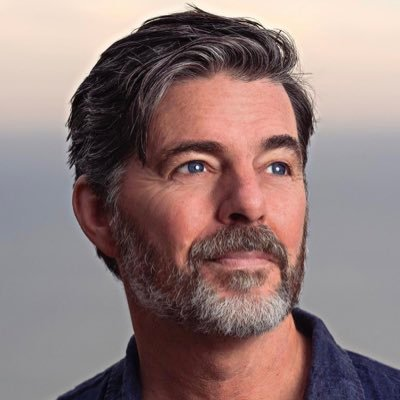 Tom Price
Tom Price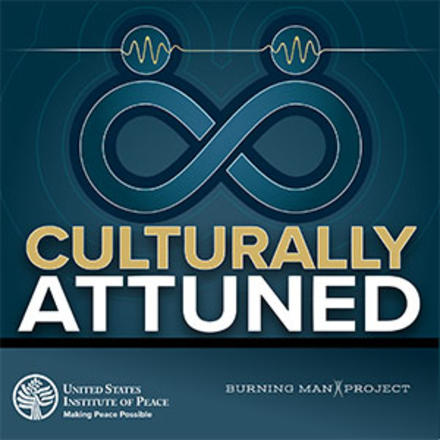 Culturally Attuned Podcast
Culturally Attuned Podcast
